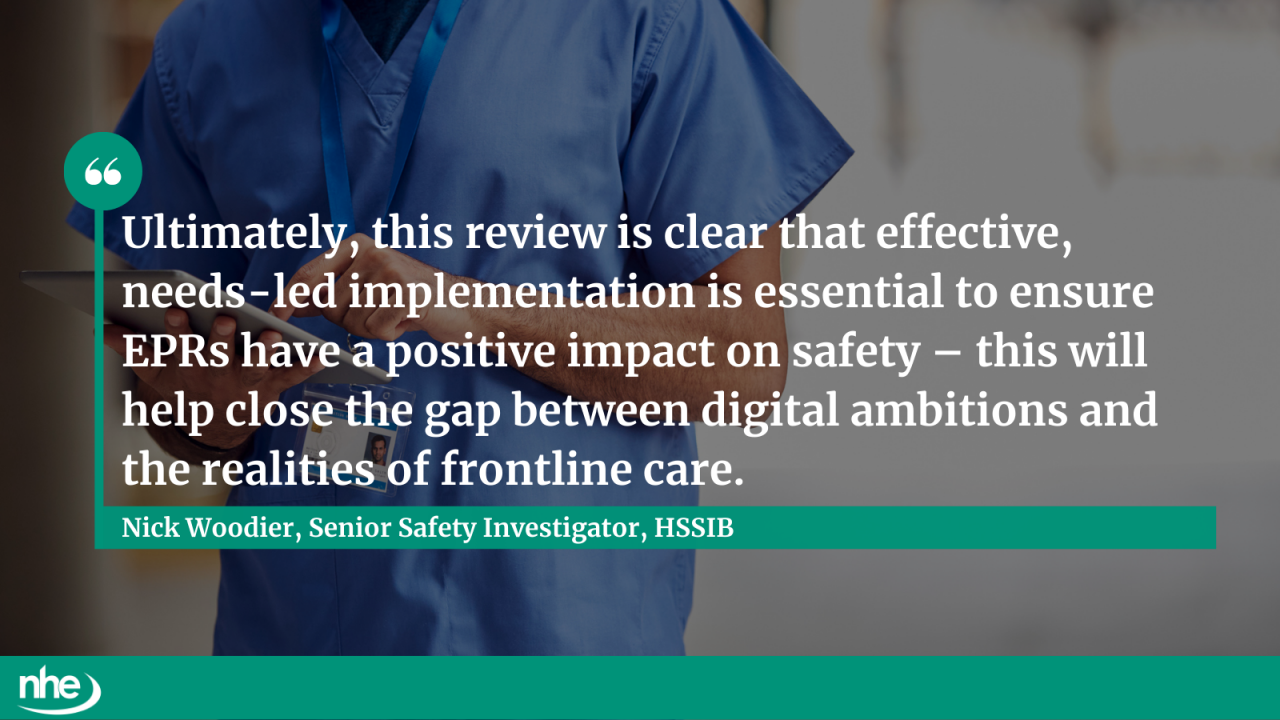A new thematic review published by the Health Safety and Standards Investigations Body warns that electronic patient record systems continue to contribute to missed, delayed or incorrect care, despite national recommendations aimed at reducing these risks.
The report examines investigations from 2018 to 2025, identifying recurring issues with EPR systems and their impact on patient safety, organisational efficiency and national digitisation efforts.
While EPR systems can improve care and support safety, the review highlights persistent problems in design and implementation, including poor usability, outdated hardware and infrastructure, and limited resources for safe ongoing use and optimisation
The report cites specific cases of patient harm, including a four-year-old girl who received five incorrect doses of blood-thinning medication due to an error in an electronic prescribing system. The system failed to flag the mistake, contributing to bleeding around her brain.
Three key themes emerged:
- Choosing an EPR system that meets organisational needs – systems lacking essential functions contributed to safety incidents.
- Implementing EPR systems effectively – inconsistent governance at national, regional and organisational levels left risks unmitigated.
- Seeking feedback and ongoing optimisation – staff reported limited channels to raise concerns about poor functionality and usability, with little action taken.
Senior Safety Investigator at the HSSIB, Nick Woodier, commented:
"Electronic patient record systems are a central part of modern healthcare and will only become more important as national digital ambitions continue to grow.
"This report is not a criticism of EPRs themselves; when implemented well, they can bring benefits for patient safety. However, the analysis of our past investigations shows that systems which are poorly implemented, difficult to use, or do not meet the needs of staff and organisations can introduce avoidable patient safety risks, which can contribute to serious harm.
"We note in the report that these issues persist despite national recommendations and concerted efforts to reduce the risks. Ultimately, this review is clear that effective, needs-led implementation is essential to ensure EPRs have a positive impact on safety – this will help close the gap between digital ambitions and the realities of frontline care."

The review calls for further action to strengthen digital safety and provides local learning prompts to help provider organisations identify and address risks when procuring, implementing and optimising EPR systems.
Image credit: iStock



















